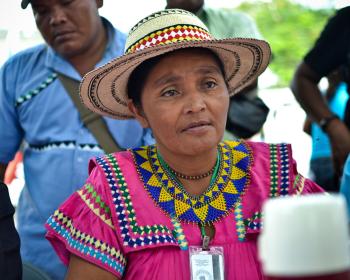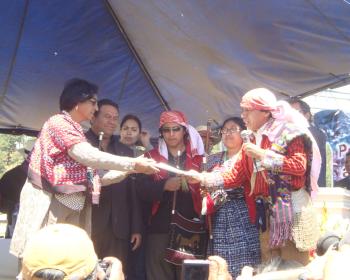Ethiopian Prime Minister Meles Zenawi met with President Obama and the other G8 members along with three other African leaders on May 19th to discuss food security on the African continent. On Friday, Obama pledged $3 billion in private-sector pledges to help feed Africa’s poor. Our campaign partners, the Oakland Institute and the Solidarity Movement for a New Ethiopia (SMNE) along with over 8,000 signees are calling on President Obama to “reass


